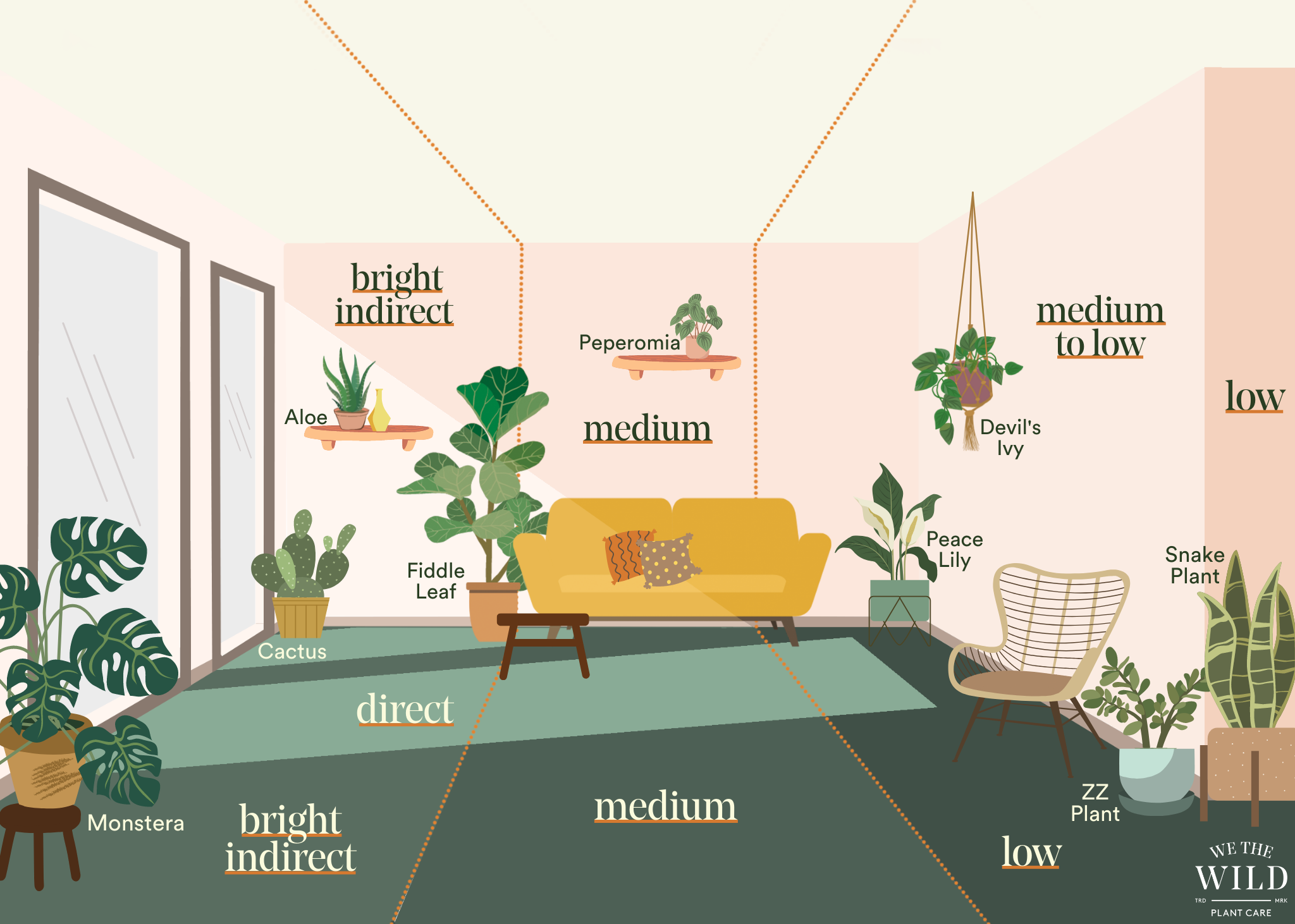

USM Library staff and faculty donate young plants for students to take back to their dorm, apartment, or house. These are usually very easy to care for indoor plants, such as, pothos, spider, snake, aloe, or cactus.
 When you bring your plant back to your home, you may want to spray water, rubbing alcohol, or neem on the leaves to remove any potential pests.
When you bring your plant back to your home, you may want to spray water, rubbing alcohol, or neem on the leaves to remove any potential pests.
Try to keep the new plant away from your other plants for 2-3 weeks, ideally in another room, so that if your new plant has pests or a disease they won't spread.
Photo Credit: USM Libraries
Light allows plants to photosynthesize and grow! Most foliage and jungle plants do best in bright, indirect light while more drought-tolerant, desert plants need full sunlight.
“Bright light” or “full sun” means there is no barrier between the plant and the sun.
“Medium light” or “bright, indirect light” is light that’s been diffused (sheer curtains) between the plant and the light source (a sunny window). Anything partially obstructing the path between your plant and the light source creates this medium light.
“Low light” means no direct sunlight will reach your plant.
Image Credit: We the Wild: Plant Care
 While it would be convenient to just water your plants once a week and be done, but this can cause under- and over-watering for plants.
While it would be convenient to just water your plants once a week and be done, but this can cause under- and over-watering for plants.
The best way to water your plants is to check and see if they need to be watered! Most plants do well if you let the top of the soil dry out slightly before watering, usually around the top 1 inch should be dry, For cactus and other succulents, it's usually 2 inches. Also, be sure that the pot has drainage holes, to avoid root rot.
Photo Credit: U Maine Extension Service
You can use any common houseplant fertilizer. The Kansas State Research and Extension Communities recommends using fertilizer at half strength every 3-4 weeks from April through October. They recommend no fertilizer from November through March, during the months with low light.

Photo Credit: U Maine Extension Service
Adrian Higgins, Garden Columnist for The Washington Post
Repotting a houseplant
Short video about Pothos care!
University of Vermont Extension Service